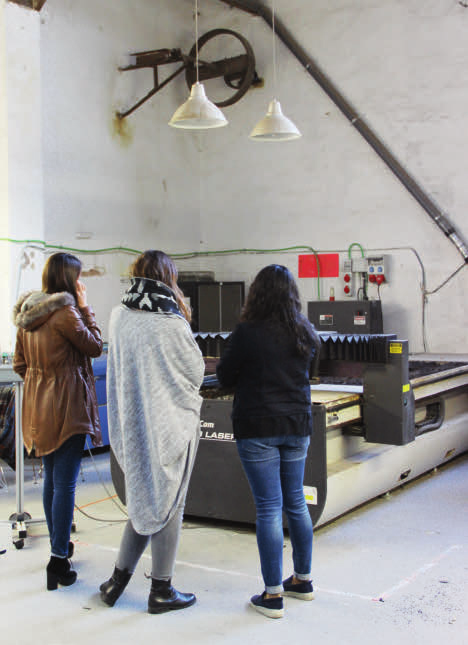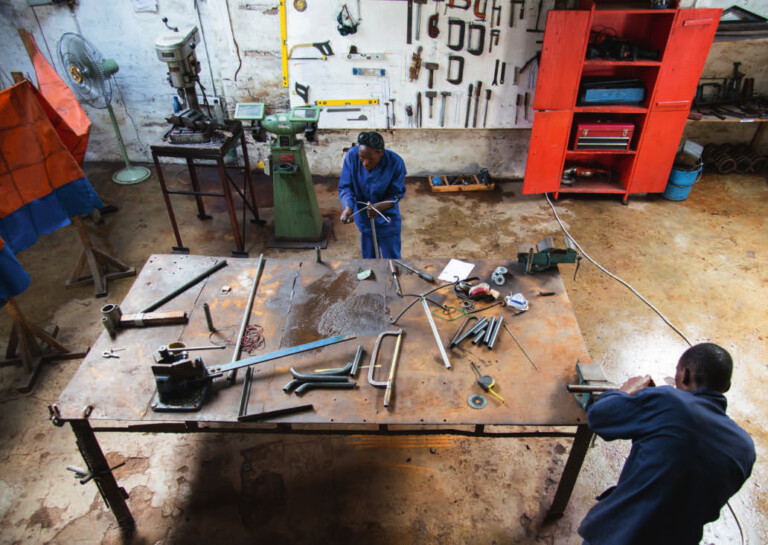We have long been encouraged to put our trust in big organisations with global reach, in big-name businessmen and politicians, in brands whose names are known around the world. Now, however, we are becoming both weary and wary of the political and corporate establishments as they fail to live up to expectations. As we seek a fairer, more sustainable and equitable world, we are realising bigger does not always mean better. People are starting to seek self-sufficiency and local solutions, and this edition of Viewpoint focuses on scaling down – without losing big ideas.
The rise of the Sharing Economy, where access is valued over ownership and material possessions have lost their lustre, the reality check that our planet’s resources are finite, and the growing understanding of the environmental impact of personal choice, are making individuals more difficult to satisfy than ever before – and more powerful, as grass-roots action and bottom-up reform take hold. This is, writes Adam Lent, author of Small is Powerful, part of a growing revolution of small against big: ‘Political and social change is increasingly delivered by many small initiatives and campaigns rather than big parties.

And, more than ever, people make their own decisions about how to live their lives rather than accepting the rulings of big religious and civil organisations.’ Lent argues that this will ultimately lead to a more equal world: ‘A world where power and resources are shared out much more widely will deliver the fairer, stabler, wealthier world we want.’ Political commentators, designers and thinkers are imagining a future where globalisation is reversed. In his book PostCapitalism: A Guide to our Future, Paul Mason envisages a future of networks rather than hierarchies, built around cooperative schemes of free exchange and collective ownership, powered by the digital revolution. This is, he says, the first time in human history where people are equipped with sufficient understanding to predict and shape change. And, he contends, this is already happening: ‘Almost unnoticed … whole swathes of economic life are changing.

Goods and services that no longer respond to the dictates of neoliberalism are appearing, from parallel currencies and time banks to cooperatives and self-managed online spaces. Vast numbers of people are changing their behaviour, discovering new forms of ownership, lending and doing business that are distinct from, and contrary to, the current system of state-backed corporate capitalism.’ Brands are also adopting new behaviours and embracing alternative attitudes, as they begin to realise that they need to adapt their offerings. They are starting to become enablers as well as producers, trading in knowledge as well as product, and collaborating rather than dictating. They are fostering connection, sharing information, and empowering their customers to be more self-sufficient and independent; responding to the way that we are becoming more open to alternative ways of doing things, more willing to take action, keener to have a say in how our world is run.
TAKING BACK CONTROL
Individuals, innovators and small organisations are starting to seek control in fields that have long been considered the responsibility of government, big business, or a combination of both. The collapse of institutions such as Lehman Brothers in 2008, the largest bankruptcy filing in US history, the fall of Royal Bank of Scotland around the same time (caused by a disastrous attempt to expand) and the current problems faced by Deutsche Bank have all helped to show that scale and state backing do not guarantee success or longevity in the financial world. The open-source, decentralised Etherium computing platform uses cryptocurrency, similar to bitcoin: while this way of doing business is still at an early stage, it potentially points the way to greater financial freedom, unfettered by conventional currency, bank or government regulations.

A rethink around welfare and education is also under way. National basic income schemes pay all adults an unconditional living wage, whether they work or not; this represents a sea change away from welfare systems to national investment in individual citizens, who are free to use their income as they wish (small-scale experiments with this kind of individual financing have found a significant proportion of recipients becoming micropreneurs). Finland and the Netherlands are both launching pilot schemes in 2017. Parents are also taking responsibility for their children’s education, rather than relying on the state: the BBC reported a 65% increase in home schooling in England and Wales between 2009 and 2015. Adult education is also receiving a radical makeover: Leyla Acaroglu is the founder of the UnSchool of Disruptive Design, which aims to disrupt the mainstream way that knowledge is gained and shared. It runs innovative pop-up programs around the world and recently won a CORE77 Design Education Initiative Award. ‘We work with designers, artists, innovators and change agents to collaboratively curate experiences that challenge people to think differently about the ways in which we live in the world for positive social change,’ explains Acaroglu.
NEIGHBOURHOOD POWER
Political power is refocusing towards the city and the neighbourhood; the position of mayor of London, directly elected since 2000, now wields genuine political power, while in the US, political theorist Benjamin Barber has observed that trust levels for local, city-based officials way outstrip those for national politicians ‘because they’re from the neighbourhood, because the people they work with are their neighbours.’ On a larger scale, one of the key messages that influenced the British referendum vote to leave the EU was ‘taking back control’ – showing how much of a chord is struck by the concept of sovereignty in an uncertain world. The possible devolution of Scotland from the UK remains a political hot potato. In Catalonia, northeastern Spain, separatists are demanding secession. Ada Colau, the radical mayor of Catalan capital Barcelona, began her political career as a grassroots activist. The Barcelona en Comú movement she represents was among new groups that defeated established parties to win power in eight major Spanish cities, including Madrid, Valencia and Zaragoza, electing new, progressive ‘mayors of change’.

INDIVIDUAL ACTION
People are taking the initiative and acting for themselves – and for others. The internet, a key conduit for political messaging (see our Undercurrents feature on rebranding politics) is also a key conduit for the devolution of responsibility; when governments fail to act decisively, activists can use media platforms to spark both global awareness and local action. The Refugees Welcome website, for example, connects Europeans who have space to offer in their homes with refugees fleeing war zones. The Ceal initiative focuses on individuals as catalysts for social change at grass-roots level, bringing together communities and facilitators on practical, action-based learning programmes for young people. A group of Czech designers, recognising both the essential nature of internet access and their own ability to help on a human scale, developed the 3D-printed MeshPoint emergency wifi hotspot kit for distribution to refugees and crisis-hit areas.









